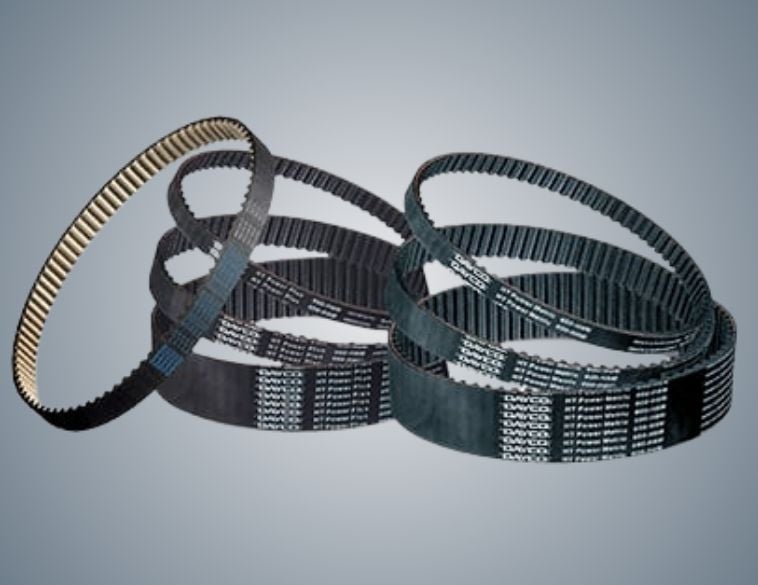Regular contact and earning trust are key factors for younger motorists when it comes to vehicle repairs.
For marketers, the term “millennial” is often bandied about. Millennials or Generation Y—loosely defined as those born between 1981 and 1996—are considered the prized demographic, since in terms of numbers they are the largest generation since the baby boomers (approximately 7.3 million of them live in Canada).
As a result, they represent a huge market of not only consumers but influencers, given that they are often perceived as valuing shared information and reviews, particularly through social media channels.
For industries such as the automotive aftermarket, the millennial generation are increasingly becoming vehicle owners, with the older members establishing families and often relying on a personal vehicle or two for their transportation needs.
Differing views
Yet how younger motorists perceive the aftermarket and the services they expect tend to differ from older generations.
To provide a better understanding of how service providers can effectively engage with these consumers, the Automotive Industries Association of Canada (AIA Canada) in partnership with Quorus Consulting Group put together a study entitled—Understanding Millennials: A Quick Profile of Young Canadian Vehicle Owners.
The report, which was a national survey, drew responses from 2061 Canadian adults (including 333 millennials) to help better understand the latter’s behavior, attitude and preferences when it comes to vehicle maintenance & repair (M&R), as well as selecting a service provider, in-car data and online retailing.
The results of the study presented some interesting findings including these key takeaways:
Maintenance & Repair
- 63 % feel they are very or somewhat knowledgeable when it comes to repairs
- 49% feel helpless bringing their vehicle in for M&R
- 48 % believe they stay on top of everything related to vehicle maintenance
- 46% believe they are fairly attentive but let some maintenance slide from time to time
- 5 % believe vehicle maintenance is a low priority
- 31% currently own their first vehicle
- 31% are on their second vehicle
- 20% said they were DIYers (never bringing their vehicle to a dealer or ASP)
- 44% said they do a bit of work themselves but also bring their vehicle to a shop
- 36% only go to a dealer or ASP
- 21% use a dealer exclusively
- 17% use an ASP exclusively
- 62% use both ASPs and dealers for M&R
Aftermarket Service Providers versus Dealers
- 30 % said dealers outperform ASPs in terms of overall service
- 28% said ASPs outperformed dealers
- 42 % said both ASPs and dealers performed the same
- 47 % said they had a bad experience with an aftermarket provider
- 55% said they had a bad experience with a dealer
Earning Trust
- 76 % said their top priority when choosing an ASP was referrals
- 70% said their top priority was the price
- 61 % said their top priority was online ratings/reviews
Factors Influencing Trust
- 77% said they would be more trusting if time was spent explaining the impact of M&R
- 76% said they would be more trusting is there was better short; medium and long-term planning
- 74% said they would be more trusting if it was always the same technician working on their vehicle
- 70% said they would be more trusting if they received email, videos and online content explaining the importance and scope of M&R
On the purchasing and e-commerce side, the report also presented some interesting findings. Key among them were:
- 30% conducted an online vehicle component or fluid purchase (10% more than other age categories)
- 80% of those who shopped within the last year were very likely to conduct a part or fluid purchase in the next year
- 58% were somewhat likely to make an online part or fluid purchase in the future
Perceptions of vehicle data also revealed some interesting findings, including:
- 74% of millennials would have not considered vehicle data and who owns it prior to the survey
- 86% would wirelessly transmit repair/diagnostic info to their service provider to stay current on maintenance
- 59% would select a retailer based on receiving electronic requests for parts/fluid needs for their vehicle
- 63% would be more proactive around vehicle maintenance if they were more familiar with the data being transmitted from their vehicle
Additionally, 78% of those surveyed said that vehicle OEMs should be doing more when it comes to educating Canadians about the data their vehicle produces, while 74% felt the government should be stepping up to do the same.
Conclusion
The report determined that based on its findings, as a group, millennial vehicle owners look for specific things when it comes to automotive service repair. Firstly, that they see themselves as fairly knowledgeable when it comes to vehicle repairs and maintenance.
Secondly, that getting those repairs done is not a huge priority for them and that communication and trust are crucial when it comes to building relationships with service providers, as is the ability to conduct that communication via electronic means.
The fact that 49% said they felt helpless when bringing their vehicle into a shop for maintenance and repairs also indicates there is still a big issue when it comes to communication, knowledge and trust.
Furthermore, the report concluded that many Canadians still do not budget nor plan for vehicle maintenance and repair.
Therefore, the ability for service providers to not only communicate effectively with their millennial customers but also work with them to come up with a proactive plan for vehicle repair and maintenance—including the when and the why a particular procedure is needed, as well as the cost involved and why—will go an incredibly long way to earning their trust and loyalty over the longer term.
Additionally, it is also important for shops to consider that the term millennial is a bit of a misnomer.
The oldest members of this demographic are approaching 40 years old, while the youngest members are just beginning to establish themselves in the workforce.
Therefore, their priorities, the type of vehicle they own, as well as their motoring requirements are likely to be very different.
As a result, in addition to regular communication and utilizing digital tools to deliver it, understanding an individual customer’s needs when it comes to vehicle maintenance repair is just as important today as it was a generation ago, whether your customers happen to be millennials or not.
Studies like this then, are the ultimate proof that the more things change, the more they tend to stay the same.
For a detailed look at the AIA report, visit aiacanada.com



